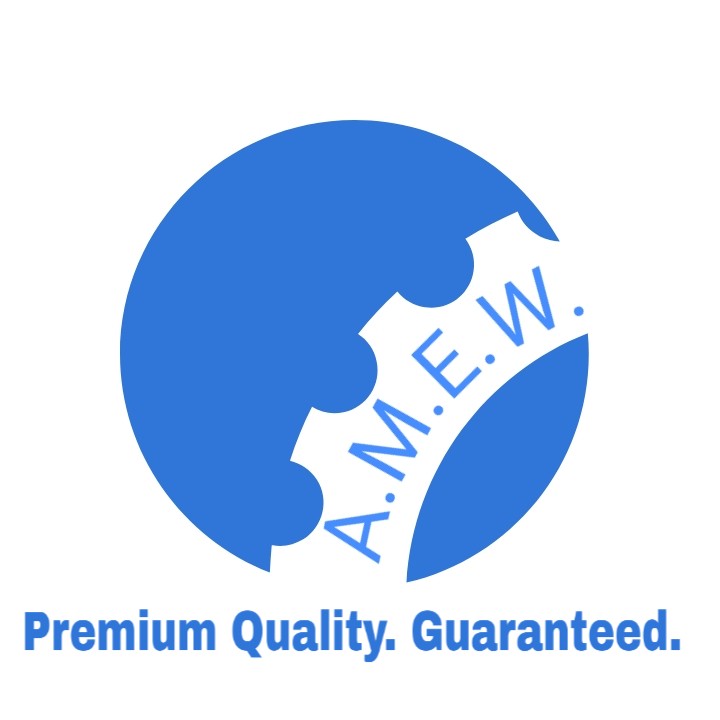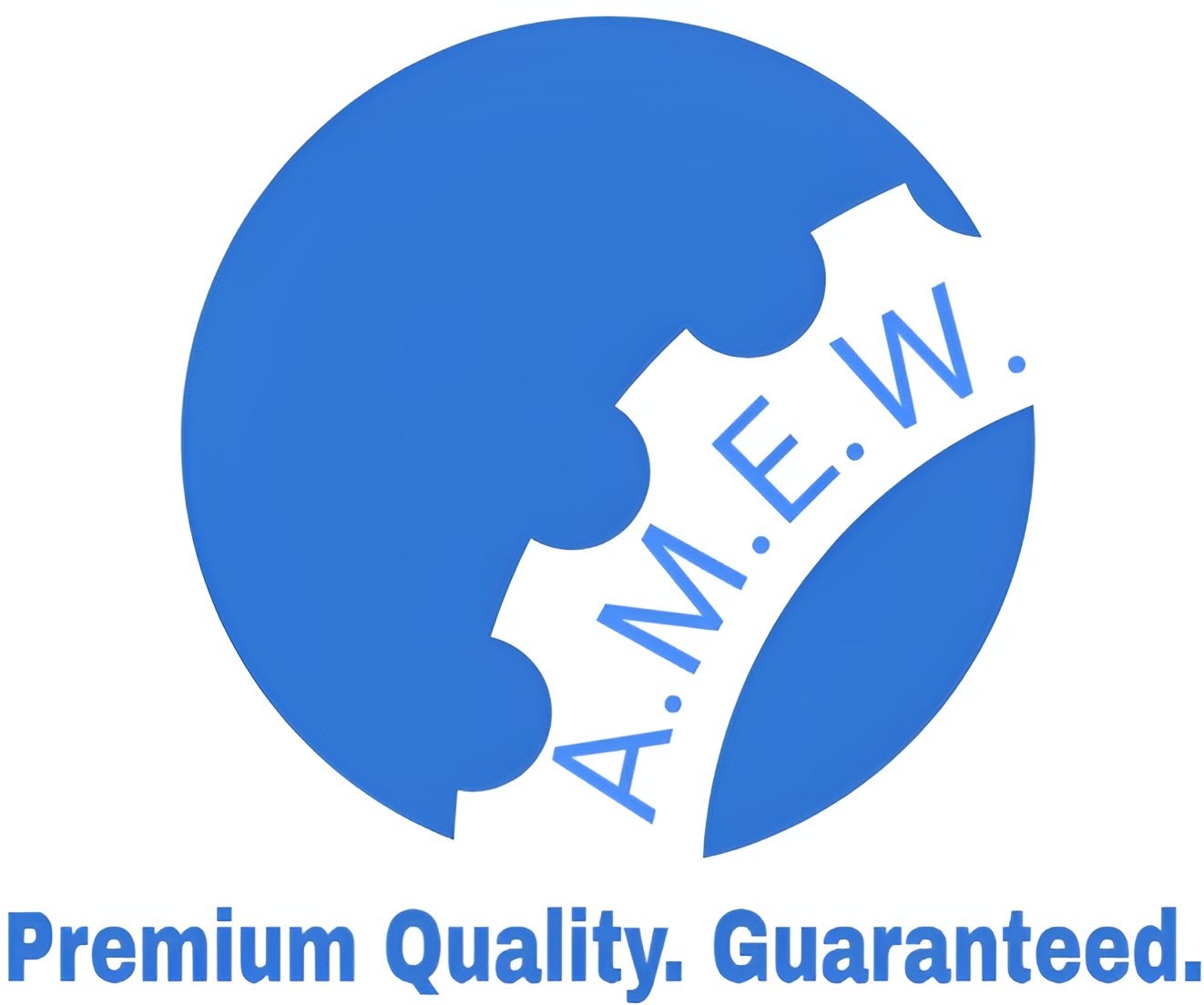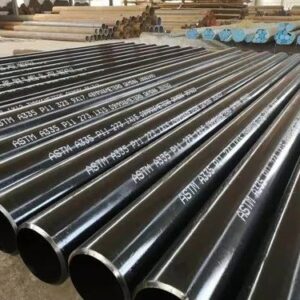Description
What is Chrome Moly Pipe?
Overview of Chrome-Moly Steel Pipes
Chrome-moly pipe is a low-alloy steel pipe known for its high strength and durability, making it a preferred choice over mild carbon steel. The name “chrome-moly” is derived from the primary alloying elements: Chromium and Molybdenum. Chromium enhances the hardness and corrosion resistance of the steel, while Molybdenum improves its toughness and resistance to temperature fluctuations. As a result, chrome-moly pipe is often utilized in applications that require exceptional strength and durability beyond that of standard steel.
Chrome-Moly Tube Applications
Chrome-moly’s excellent strength-to-weight ratio and tensile strength make it highly sought after in various manufacturing sectors:
- Aerospace and Automotive Industries: Used in aircraft fuselages, racing car chassis, and high-end bicycle frames, chrome-moly allows for reduced weight while maintaining strength and integrity.
- Performance Enhancements: In high-end racing vehicles, chrome-moly components contribute to reduced weight, enhancing speed and performance without sacrificing stiffness.
- Construction and Oil & Gas Sectors: Its adoption has grown in the cycling industry in recent years, while it has been a staple in construction and the oil and gas sector for a longer duration.
Characteristics of Chrome Moly Steel ERW Pipe
One of the most significant characteristics of chrome-moly steel is its ability to be easily hardened through heat treatment or work hardening. A specific process known as carburization significantly hardens the surface of the steel while retaining its chemical properties.
- Hardening Benefits: The ability to harden chrome-moly steel helps to reduce wear and tear, thereby increasing its lifespan.
- Carburization Process: This involves heating the steel in a carbon-rich environment, allowing it to absorb carbon, which increases hardness depending on the duration and temperature of the treatment.
- Applications: This hardening process makes chrome-moly ideal for manufacturing high-performance parts such as pistons and crankshafts.
Welding of Chrome Moly Tube
Welding chrome-moly tubes and pipes involves certain considerations, though the techniques are similar to those used for mild steel or stainless steel. Both MIG and TIG welding methods are compatible, with TIG welding often noted for its speed, effectiveness, and cleanliness.
- Preheating Requirements: While preheating chrome-moly before welding is generally recommended, it is not necessary for pipes with a thickness of less than 3mm. For thicker materials, gradual preheating is advised.
- Welding Process: It is essential to clean the material thoroughly before welding to prevent issues. The welding process should proceed slowly to manage the cooling rate; rapid cooling should be avoided.
Chrome Moly Tubing Corrosion Properties
The chromium content in chrome-moly steel enhances its resistance to corrosion. While not as corrosion-resistant as stainless steel, chrome-moly can handle harsh environments better than many standard steels. For environments with higher corrosion demands, alternative materials may be necessary.
Why Does Chrome Moly Steel Pipe Offer Value for Money?
Despite being priced higher than mild steel, the strength, durability, and versatility of chrome-moly pipes often justify the cost.
- Cost-Effectiveness: Chrome-moly is more economical compared to carbon fiber and titanium, providing excellent strength and flexibility for demanding applications.
Chrome Molybdenum Steel Pipe Specifications
- Sizes Available: Chrome moly pipes come in a variety of sizes, including ready stock options for Chrome Moly Steel ERW Pipe and 6″ Chrome Moly Steel Pipe.
- Price Range: Cold Rolled Thin Wall Chromoly Steel Tubing is priced between US $850 – 1,500/Ton.
Dimensions, Sizes & Schedule Chart
- Other Trade Names: Chrome-moly, cro-moly, CrMo, CRMO, CR-MOLY, A335 P-Grade Seamless Chrome Moly Pipe.
- Available Size Range: NPS 1/2″ – 24″
- Pipe Schedule: 40, 40S, 60, 80, 100, 120, 160, STD, XH, XXH
- Wall Thicknesses: Up to 4 inches
Chrome Moly Grades
- A/SA 335 Grades: A335 P5, A335 P9, A335 P11, A335 P22, A335 P91
Chrome Moly Piping Material and Grades
- Chrome Moly Flanges: A/SA 182 F1, F2, F5, F9, F11 (most popular), F12, F15, F22, F91, F92
- Chrome Moly Forged Fittings: F-5, F-9, F-11 (CL 1 & 2), F-22 (CL 1 & 3), F-91, F-92
- Chrome Moly Buttweld Fittings: WP5, WP9, WP11 (CL 1 & 2), WP22 (CL 1 & 3), WP91, WP92
Chrome Moly Pipe and Tube Specifications
| Pipe Grade | Equivalent Forgings | Equivalent Castings | Equivalent Fittings |
|---|---|---|---|
| 1/2Cr-1/2Mo Alloy Steel | ASTM A182 F2 | ||
| 1/2Cr-1/2Mo-1 Alloy Steel | A217-WC4 | ||
| 3/4Cr-1 Mo-3/4NI Alloy Steel | A217-WC5 | ||
| 1Cr-1/2Mo Alloy Steel | ASTM A182 F12 | A234-WP12 | |
| 1Cr-1 Mo-Vd Alloy Steel | A404-F24 | A389-C24 | |
| 1-1/4Cr-1/2Mo Alloy Steel | ASTM A182 F11 | A217-WC6 | A234-WP11 |
| 1-1/4Cr-1/2Mo-Vd Alloy Steel | A389-C23 | ||
| 2-1/4Cr-1/2Mo-Vd Alloy Steel | ASTM A182 F22 | A217-WC9 | A234-WP22 |
| 3Cr-1 Mo Alloy Steel | ASTM A182 F21 | ||
| 5Cr-1/2Mo Alloy Steel | ASTM A182 F5 | A234-WP5 | |
| 5Cr-1/2Mo-Si Alloy Steel | A217-Gr.C5 | ||
| 7Cr-1/2Mo Alloy Steel | ASTM A182 F7 | A234-WP7 | |
| 9Cr-1 Mo Alloy Steel | ASTM A182 F9 | A217-Gr.C12 | A234-WP9 |
| 13Cr Alloy Steel | ASTM A182 F6 | A351-CA15 |






